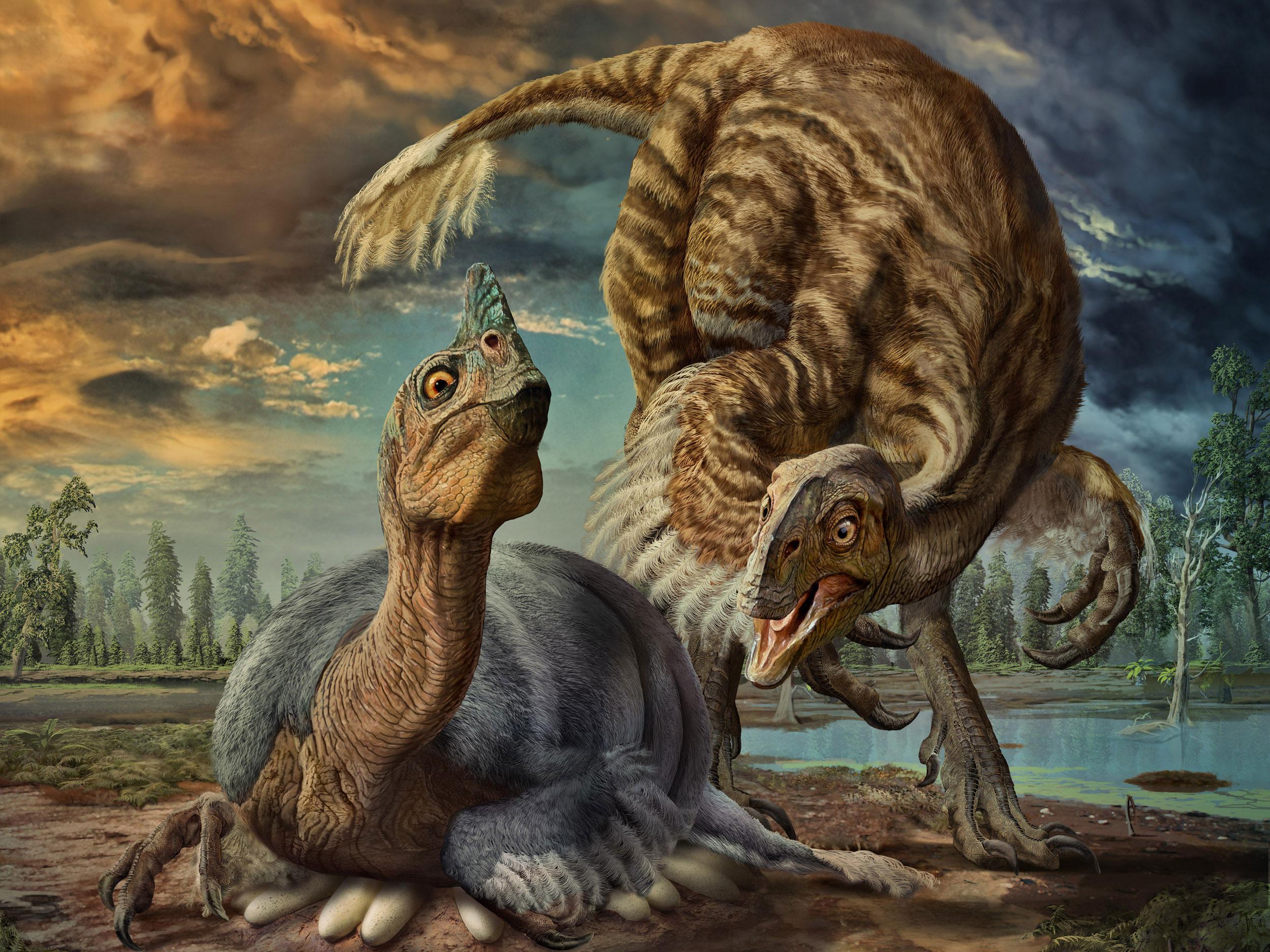Winged dinosaur the size of an elephant once lived in China, scientists discover
‘It would have been a sight to behold with a three-tonne animal like this sitting on its nest of eggs’

Your support helps us to tell the story
From reproductive rights to climate change to Big Tech, The Independent is on the ground when the story is developing. Whether it's investigating the financials of Elon Musk's pro-Trump PAC or producing our latest documentary, 'The A Word', which shines a light on the American women fighting for reproductive rights, we know how important it is to parse out the facts from the messaging.
At such a critical moment in US history, we need reporters on the ground. Your donation allows us to keep sending journalists to speak to both sides of the story.
The Independent is trusted by Americans across the entire political spectrum. And unlike many other quality news outlets, we choose not to lock Americans out of our reporting and analysis with paywalls. We believe quality journalism should be available to everyone, paid for by those who can afford it.
Your support makes all the difference.A clutch of enormous fossil eggs from China has led to the discovery of a new species of giant bird-like dinosaur.
The flightless Beibeilong sinensis, which lived around 90 million years ago, had feathers, primitive wings and a beak, but dwarfed any of its modern bird relatives.
Based on their analysis of a hatchling that died while emerging from one of the eggs, experts believe the adult creature was around eight metres (26ft) long and weighed three tonnes.
Other dinosaurs of the same type, known as oviraptorosaurs, have seldom measured more than about two metres (6.5ft).
Several Beibeilong eggs were found in Henan Province, central China, in a ring-shaped clutch which was part of a nest two to three metres (6.5ft to 9.8ft) in diameter.
The eggs are up to 45cm (17.7in) across and weighed about 5kg (11lb).
Professor Darla Zelenitsky, from the University of Calgary, Canada, whose team described the fossils in the journal Nature Communications, said: “For many years, it was a mystery as to what kind of dinosaur laid these enormous eggs.
“Because fossils of large theropods, like tyrannosaurs, were also found in the rocks in Henan, some people initially thought the eggs may have belonged to a tyrannosaur.
“Thanks to this fossil, we now know that these eggs were laid by a gigantic oviraptorosaur, a dinosaur that would have looked a lot like an overgrown cassowary.
“It would have been a sight to behold with a three-tonne animal like this sitting on its nest of eggs.”
The new species of giant oviraptorosaur is thought to be the largest dinosaur known that cared for its young in a similar way to modern birds.
The scientists estimated the size of the adult after studying the bones of the hatchling and making comparisons with other dinosaurs.
It was the stillborn dinosaur that led to the name chosen for the species. Beibeilong sinensis translates as “baby dragon from China”.
Press Association
Join our commenting forum
Join thought-provoking conversations, follow other Independent readers and see their replies
Comments